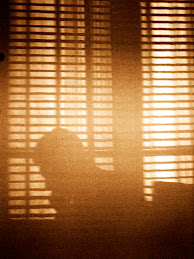Barroso waves off notion of 'United States of Europe'
BRUSSELS: José Manuel Barroso, the president of the European Commission, predicted Monday that agreement would eventually be reached on a stripped-down EU constitution, which he acknowledged could not include symbols of statehood such as a flag or an anthem if it were to win approval.
Underlining that a "United States of Europe" was an unrealistic goal, he conceded that allowing some European governments like Britain to opt out of the most sensitive parts of the treaty could be the only way to get it passed. He warned Britain and Poland, which are wary of the charter, that the policies they favor in Europe could be undermined if they were not willing to compromise.
"The rationale of European integration today is not creating a United States of Europe," he said in an interview during which he invoked the word "constitution," but was at pains to call it a "treaty" rather than a foundation for nationhood. "If you ask me, I'm not happy. But the EU does not pretend to be a state and it will not be in the foreseeable future."
The draft EU constitution, which was supposed to streamline EU decision-making and improve the bloc's profile on the world stage, was rejected by voters in France and the Netherlands in 2005. Chancellor Angela Merkel of Germany, whose country holds the six-month rotating presidency of the EU, is engaged in frantic diplomacy to try to get a revised document passed. She wants EU governments to approve the outlines of a new treaty at a summit in Brussels on June 21 and 22.
Barroso said the treaty would probably revive some of the controversial aspects of the rejected constitution, including a new permanent EU president, a foreign minister and a revamped voting system that would reduce national vetoes and diminish the power of countries like Britain to block proposals.
He acknowledged that reviving parts of a rejected charter could spawn a public backlash, but argued that failure to implement institutional reforms would be worse.
"It's a real threat to the credibility of the EU," he said. "People ask how can we address the biggest issues - like climate change - when you can't even decide how to work together."
Acknowledging that some EU countries like Britain and Ireland had different political cultures and legal systems from the rest of the EU, he said that it was conceivable that some countries could opt out of sensitive parts such as relinquishing of national vetoes over justice and internal affairs issues.
"As a rule, to have opt-outs is not good. But if it is the solution, I will not be against it."
Countries still remain divided over what the treaty's contents should be. Germany and France are pressing for the treaty to include a charter of fundamental rights - which would expand workers' rights and empower unions - a move many in Britain and elsewhere regard as a step too far.
Poland, meantime, has threatened to veto the opening of talks on the revamped charter unless EU countries agree to an alternative voting system that would narrow the balance of power between the bloc's largest and smallest countries. Under the Polish proposal, Poland, with 38 million people, would have six votes in the EU's council of ministers, the body where EU governments take decisions, compared with nine votes for Germany, which has twice as many citizens as Poland.
Barroso warned that Poland, which has been embroiled in disputes with Russia over energy and trade issues, could find its national interests undermined if it sought to block the treaty.
"Poland has called for solidarity from the rest of the EU. But solidarity is a two-way avenue."
Asked if the election of Nicolas Sarkozy as French president had injected new dynamism into the process of integration, Barroso said that Sarkozy's modernizing instincts could prove key to helping Europe out of its impasse.
"He wants a more modern and open France that doesn't fear modernization," he said.
"If he can achieve it, it will be one of the most important contributions he could give to Europe."
He added, however, that Sarkozy's opposition to Turkish membership should not result in a halt of negotiations with Ankara on entry into the bloc. He said such a move would undermine the EU's credibility, dampen vital political and economic reforms in Turkey and present a danger to the region and to the world.
"We believe it would be a mistake to make a break in talks with Turkey," he said. "Our decision wasn't to let them in but to negotiate with them. Let us see if Turkey takes further steps to become a liberal democracy. But to say no now would send the wrong signal to Turkey and to the world."
Barroso also acknowledged the extent of the difficulties in forging a relationship with Russia arguing that the rhetoric of the Cold War remained worryingly present and needed to be overcome.
"This Cold War rhetoric in the 21st century is puzzling. We need to regain trust - this is not good for anyone."
The problems between the EU and Moscow range from the decision by Estonia, an EU member, to remove a Soviet war memorial in Tallinn, which provoked the Kremlin's fury, to Russia's failure to back an EU-supported agreement granting independence to the breakaway Serbian province of Kosovo. Russia also has refused to end an embargo on Polish farm exports, prompting Poland to retaliate against the Russian embargo by refusing to lift a veto that would allow negotiations over an EU-Russian partnership agreement governing trade, energy and human rights to continue.
Barroso stood by an embattled commissioner, Günter Verheugen who has been criticized for his relationship with his chief of staff, Petra Erler.
Source: The International Herald Tribine, By Michael Oreskes, Dan Bilefsky and Stephen Castle, Monday, June 11, 2007
mardi 12 juin 2007
Inscription à :
Publier les commentaires (Atom)




Aucun commentaire:
Enregistrer un commentaire